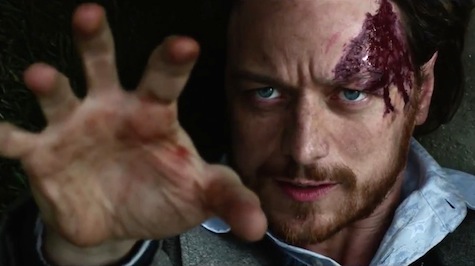At the end of X-Men: First Class, Charles Xavier lies paralyzed on a beach while Magneto makes a stirring speech about mutants and their need to separate themselves from humanity. Erik is trying to win others over to his cause, and he succeeds—half of the youngsters take his hand and vanish from sight. It’s hard not to notice that Magneto has taken with him all the female mutants and mutants of color… while Charles is left there with three white male mutants and a human.
It’s impossible to leave unnoted because X-Men Days of Future Past is concerned with precisely this dialogue, and how it might have impacted the future of mutants and humans alike. Because despite Charles Xavier’s experience and affability, he is far from infallible. And it turns out he had one more essential lesson to learn.
Spoilers ahead for X-Men Days of Future Past.

It seems strange to focus on Charles because Magneto is the bad guy, right? If anyone needs to figure out a healthier way of routing their pain, it’s certainly Erik Lehnsherr. But Professor X is responsible for training the X-Men, responsible for most of the peaceful interactions between mutants and humans, responsible for teaching countless youths how to handle and live with their abilities. If the future has gone so very wrong—and in DoFP, we see that it certainly has—then Charles Xavier is undoubtedly at the heart of it.
This is all subtly and smartly set up in First Class, in fact. We watch a young Charles woo women by using his powers, making mutation out to be something “groovy” while he roundly ignores the plight of the only real family he’s got: Raven, whose mutation demands constant concentration and exertion on her part just to make sure people never see her natural form. Rather than demand that the world love Raven blue or otherwise, Xavier insists that she conform to societal ideals “for her safety.” The truth of the matter is, he simply doesn’t want to have to think that hard about how difficult her plight might be, never mind considering ways of bettering her quality of life. It is standard grade white male privilege distilled down to its simplest form. It’s much easier for him if Raven fits in so it never becomes his problem, and that’s what he preaches in her direction.
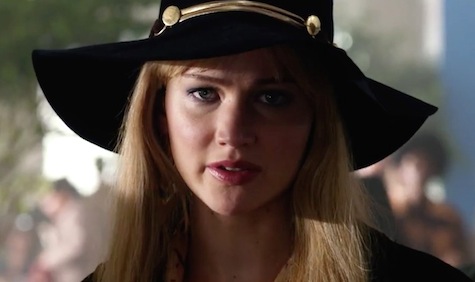
Our beloved Professor X may not intend it, but when we look at his track record in the films it’s rather simple to peg—he’s sexist. Call it being a product of his time or paternal instinct, the outcome is still the same. Charles Xavier thinks that he knows what is best for every woman around him, and goes to great lengths to keep them in line. He tells Raven to stick to a human-looking form because “a real slip up doesn’t bear thinking about.” When Moira MacTaggert swears to Charles that she will keep his secrets safe and never tell the U.S. government about where he and the other mutants are, he erases her memory anyhow. (And the only real regret there is his heartbreak at letting their little romance go.) When Charles Xavier wants to have a fling, he enters a woman’s mind to suss out her favorite drink and orders it before she can catch the bartender’s eyes because, sure, it’s a gross invasion of privacy, but it’s easier to get laid this way!
And when Charles Xavier recruits a female student with powers similar to but far outpacing his own, he makes a point of burying them and keeping her attentions otherwise occupied. Because Professor X knows what’s right, and he’s certain that Jean Grey cannot be taught to develop and handle her abilities correctly.
Except it’s his lack of trust in Jean, his insistence that he knows what is best for her, that ultimately leads to the emergence of Phoenix and the death and destruction she brings with her. And since the Sentinels don’t emerge until her god-like display of power in the original timeline (post-X3), it’s safe to assume that she is one of the primary reasons for their initial deployment. In effect, Charles Xavier is directly responsible for how bad things get, if only by virtue of how he has treated Jean.
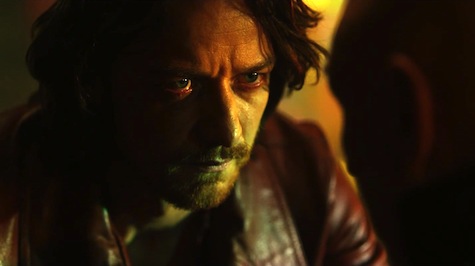
Jean becoming Phoenix could simply be passed off as one incident of poor judgement if First Class and Days of Future Past did not build on and address this pattern. When Wolverine arrives in 1973, he finds Charles Xavier broken and addled, addicted to the serum Hank has developed which allows him to snuff out his powers and have use of his legs. We find that Charles didn’t simply throw in the towel after that day on the beach—he did try to get his school up and running, and had a slew of students for a time. Then the Vietnam draft kicked in, and he lost those students to one of the most horrific wars America has ever fought. Many of them died. At that point, Charles retreated into himself with only Hank around for company, becoming a complete recluse. The school closed its doors seemingly for good.
That pain and loss is truly tragic, but I must point out nonetheless; if all of Charles’ students get pulled out by the draft, that would mean that all of his students at the time were male and American. It’s in keeping with who remains with him on the Cuban beach in First Class (even if Hank was looking a little blue at the time), so it’s not exactly surprising… just disappointing. More to the point, Charles left his subsequently-drafted students to their fate, never bothering to look into what the government might do once they realized their new soldiers had untapped potential. Some of those students probably died in battle. Others were likely lifted for far more nefarious purposes, like Alex and his platoon.

But no, Charles Xavier never comes to their rescue. When it’s clear that none of those boys will ever make it home, it is Raven—or, rather, Mystique—who keeps them safe.
And here we have the fixed point on which Days of Future Past turns. At the beginning, Logan is informed by Xavier and Magneto that Raven is the problem, the “what” that needs fixing if their future is going to be bright. Her murder of Bolivar Trask leads to her capture and the eventual development of Sentinels that can adapt to any mutant, resulting in their elimination. If she doesn’t get the chance to kill Trask, they believe the world will change for the better. Wolverine takes the ticket back to 1973 to work it out.
When Logan comes to their younger counterparts for help in this mission, they go about the problem in their tried and true manners, respectively. Erik doesn’t believe they have time to reason it out and tries to take Mystique’s life. (He’s as much at fault here as Xavier, but he’s supposed to be the bad guy, or at least the morally ambiguous looks-great-in-hats-and-turtlenecks brooding guy.) Charles falls back on his paternal feelings of devotion, insisting that he can help by protecting Raven. When they stop her first assassination attempt and Mystique is briefly stunned, Charles tries to soothe her, insists that now he has arrived no one will ever hurt her again. It’s touching, naturally—it’s also nothing that Mystique wants to hear. It’s what Charles needs. She brought him purpose and a family, and he wants that sense of self back. He doesn’t realize that what he’s trying to reassert is everything that she ran away from to begin with.
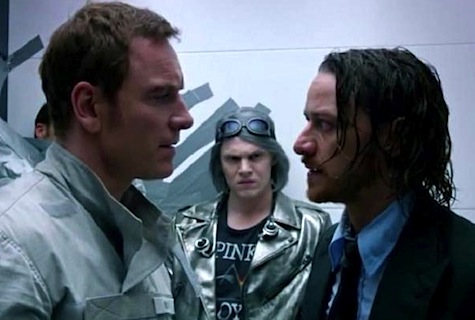
Particularly telling in this situation is Charles’ insistence that he raised her, that he was practically Raven’s father. Erik won’t let him get away with it, quick to point out that he was in no position to be her parent, but rather more of a brother. In Xavier’s mind he is Raven’s guardian, but even Magneto knows that was never how she saw Charles or what she wanted from him. Xavier’s mistaking of roles is an excuse here more than anything; parents get to tell their children what to do and how to behave, after all. It’s a power he wishes he had over her.
When Charles again tries to press Mystique into returning to him, reaching out with his mind to bug her in an airport, he uses the phrase “Come home.” His argument is full of implicit accusations—that she is being thoughtless and acting dangerously, that she must come to realize that he’s trying to save her, improve their future, put everything back in its proper place. She, like Erik, is in no mood for his self-delusion; she tells him in plain English that he has always tried to control her and he still is. That she broke away from that life and has no intention of giving up her freedom just so his mind can rest easy, so that Charles Xavier feels less alone. She walks away from both him and Erik (more important for the fact that Mystique in the original timeline spends the next several decades as Magneto’s right-hand woman with no agenda or desires solely her own). She insists on going her own road, no matter what the future might bring. She says no to all of it.
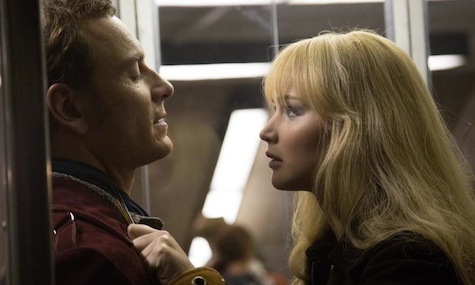
When she tries to kill Trask in the end, a lone-wolfing Erik almost beats her to it, grandstanding with his usual flair. But Charles puts him on hold, giving her a window to make the kill herself. Suddenly it seems as though the continued refusals, the outright condemnation of his methods, the painful frankness of lost friends has finally made an impact. Charles Xavier admits that he was wrong. That he had been trying to control her, and that refusing to place trust in her choices was a mistake. He gives her his perspective on the situation and steps back. He puts their future, that whole mess of a future, in her hands with good faith.
And it is Mystique who ultimately saves them all. Because Charles Xavier learned how to let go. Because Charles Xavier finally realized that believing others would do the right thing and allowing them to do so were two different matters altogether. The future was changed then and there—and an alternate timeline that we’ve yet to experience now rests in its place.
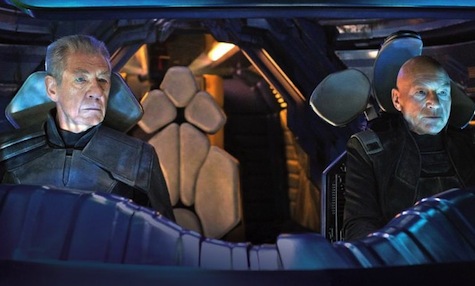
So what happens? Ten, twenty, forty years down the road? Do you really think this man would make the same mistake of locking Jean Grey’s power away from her instead of helping her develop into it? Do you think that he would continue to shoulder the burden without placing some trust in the minds he teaches? We were led to believe that Days of Future Past would show Professor X reconstructing his life on the fast track. That this tale would see him become the older, comfortable man that we’d adored for years just slightly ahead of the curve. But the truth is, the past decade and a half of X-Men films ultimately led to this. To Charles Xavier discovering the places where he would eventually stumble and fall and fail… and becoming a better man than he ever was.
It led to Mystique saving the world because she has just as much a right to as his X-Men.
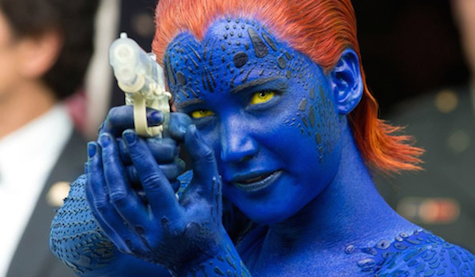
With that setting the stage for a brand new timeline, the options levied are limitless. It is a brave ploy so far into the X-Men story, but one that instantly pays off in spades. What Logan wakes to in the future will eventually come to pass—a safer, happier future made possible by these choices. And whatever happens in between? It will surely be a ride, but one that will be shaped by many. Charles Xavier and Erik Lehnsherr can fight, or coexist, or forgive each other and open up a B&B in New Hampshire—what happens from here on is no longer solely up to them.
And the future will be better for it.
Emmet Asher-Perrin wants a movie where Mystique calls the shots and Charles and Erik show up to do her bidding. You can bug her on Twitter and read more of her work here and elsewhere.










